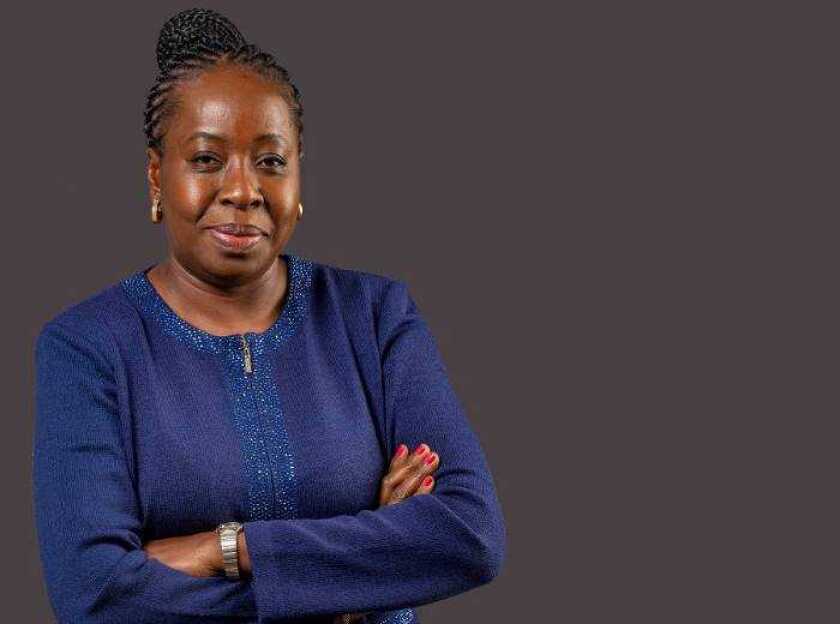As the year draws to a rapid close, the compelling case for increased investment in digital connectivity in Africa continues to blossom. At the core of it all is MainOne, a telecom services and network solutions provider with operations across West Africa.
Celebrating its 10-year anniversary this year, MainOne has invested in over US$400m in infrastructure in West Africa as part of its efforts to bridge the digital divide and enable the digital economy. The investments include submarine cables, terrestrial fibre networks, and Points of Presence (POPs) across the region. Within this period, the company has delivered services to 10 West African countries and has built Tier III data centres in Nigeria, Ghana and Cote d’Ivoire hosting the largest institutions and global content in the region, with ongoing expansions of its data centre footprint in Nigeria and Ghana.
“MainOne’s biggest achievement to date remains building the pioneering open access submarine cable system that reduced the cost of connecting our region to the internet, thus enabling access for citizens,” says Opeke.
“We have provided wholesale internet services to over 10 West African countries and broadband internet penetration in our region has grown over the past 10 years from less than 10% to approximately 40% today.”
MainOne continues to invest in bringing the benefits of digital transformation across West Africa, and with the influx of private capital coupled with a huge working population; the continent is increasingly empowered to drive growth and development.
Opeke explains that as more people migrate online and data consumption per capita increases, infrastructure requirements will grow.
“To meet the increase in demand, we are expanding our terrestrial fibre footprint across the region and we are making additional data centre investments including the expansion of our MDXi facility in Lekki, Lagos, Nigeria ready in 2021, construction of a new data centre facility in Appolonia City, Accra Ghana, and development of a Tier III data centre in Sagamu, Ogun State, Nigeria,” she adds.
The project in Appolonia City, which was initially scheduled for completion in December 2020, will now be ready for services at the end of Q1, 2021 due to the delays caused by the ongoing pandemic, specifically the global supply chain and the delivery of key components for the facility.
MDXi’s range of Tier III data centres provides an array of colocation facilities and provides facilities and operational expertise to maintain computing infrastructure while offering access to West Africa’s most connected carrier neutral ecosystem.
“We started on this journey to deploy critical infrastructure to bridge the digital divide in West Africa. While we are pleased that we have made an impact, there is so much more work to be done,” she explains.
“The recent challenges we have faced with the Covid-19 pandemic highlighted the need for additional investment and smarter policies to deploy the shared infrastructure that is required to make access to broadband a reality for more Africans at a price they can afford. MainOne has been leading that charge across West Africa for 10 years and we are even more committed to realising our vision today than we were 10 years ago”.
Market drivers
According to GSMA, around the world 750 million people remain outside of mobile broadband coverage and 40% of these live in Sub-Saharan Africa. A further 3.3 billion people worldwide live in areas with coverage, but do not use mobile internet. Almost half a billion of these people live in Sub-Saharan Africa.
The reasons for these gaps are complex, and extend beyond deploying the infrastructure that has been a key element of boosting connectivity in Africa.
When referring to market drivers for connectivity in Africa, Opeke says that over the next decade, the large youth population with over 60% of the population under 25 years old will be the root cause for the increase in digitalisation and digital literacy across the population. Financial inclusion and the entry of a greater number of citizens into the formal economy will also play a significant role.
“In addition to infrastructure, these drivers will be supported by a growing start-up and innovation ecosystem with investments of over $1.3 billion last year in the sector, which are driving locally relevant content and applications,” she says.
“MainOne is accelerating digital transformation in the West African region by investing in the infrastructure required to build the digital ecosystem.
“As a result of these investments, organisations in the region can leverage the power of our network, data centre, and cloud technology deployments to reach more consumers and/or citizens and transform their businesses.”
In 2019, the company unveiled the historical landing of MainOne Cable in Grand-Bassam, Cote D’Ivoire and Dakar; the construction of another Tier III data centre, as well as the official launch of service in Cote D’Ivoire.
“To accommodate the explosive data growth in the region, our data centre subsidiary, MDXi, provides a carrier neutral secure facility which allows customers the flexibility and agility they need to adapt to market changes,” she adds.
“In addition, integration of those data centres with robust connectivity options, including terrestrial and submarine cable access facilitates, enhanced delivery of content, interconnection between global players and local operators, increased localisation of Internet traffic and improved performance for our customers,” Opeke continues.
Africa focus
When asked about which other markets the company has its eye on, Opeke reveals that MainOne’s efforts remain tailored to West Africa because “there is still a lot more to be achieved”.
“The company is committed to deepening its penetration into the West African Francophone region with our build-out to Senegal and Cote D’Ivoire last year, and extension to Burkina Faso earlier this year,” she continues.
“The entire region is witnessing exponential growth in the information and communications technology (ICT) sector which is creating benefits and opportunities not only in the ICT sector itself, but across the entire economy.”
Nigeria has Africa’s largest mobile market, with about 173 million subscribers and a penetration rate of 123%. There remains considerable growth potential in rural areas where the provision of network infrastructure and operations is expensive, and consequently where mobile penetration is lower. The government’s plan to increase broadband penetration to 70% by 2021 largely depends on mobile infrastructure, according to a report by BubbeComm.
Last year, MainOne had strategic partnership deals with major global companies such as Facebook on open access fibre network in Nigeria with metro fibre build in the Edo and Ogun states of Nigeria. The company collaborated with Avanti Communications to deliver satellite services to enterprises in remote locations in Nigeria; and announced its pairing with Zenlayer to expand connectivity between international companies and West Africa.
“We intend to continue to invest in infrastructure projects that accelerate broadband access and the digitalisation of businesses in Nigeria,” Opeke concludes.
“Specifically, we are expanding our MDXi data centre footprint in Lekki, Lagos, Nigeria which is uniquely collocated adjacent to our submarine cable station and provides access to all the major networks in the West African region. In addition, we are also developing a Tier III data centre in Sagamu, Ogun State, Nigeria.”





